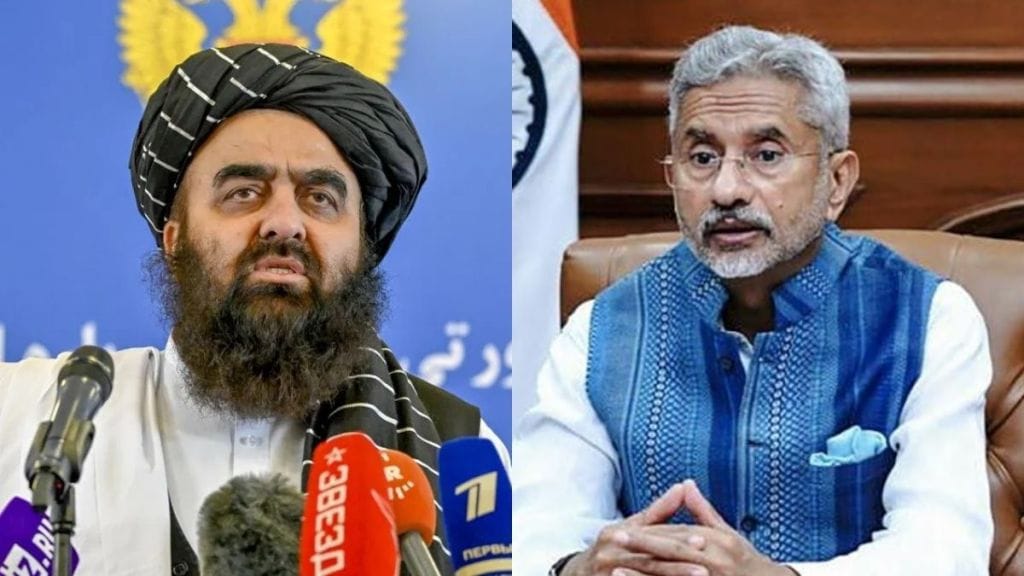External Affairs Minister Subrahmanyam Jaishankar will on Friday meet his Afghanistan’s Taliban counterpart, Amir Khan Muttaqi, for the first time since the group took control over Kabul after the US military left after two decades of presence in 2021. Muttaqi arrived in New Delhi on Thursday for a week after the United Nations Security Council (UNSC) granted him temporary exemption from travel.
Muttaqi recently participated at an international meeting on Afghanistan in Russia with representatives from China, India, Pakistan, Iran, Kazakhstan, Kyrgyzstan, Tajikistan and Uzbekistan in attendance. His visit to India is signal to New Delhi’s positive engagement with a crucial neighbour, and the Taliban administration’s efforts to seek international recognition.
On Thursday, Ministry of External Affairs (MEA) spokesperson , Randhir Jaiswal, extended a welcome to Muttaqi in a post on X and said: “We look forward to engaging discussions with him on bilateral relations and regional issues.”
Warm welcome to Afghan Foreign Minister, Mawlawi Amir Khan Muttaqi on his arrival in New Delhi.
— Randhir Jaiswal (@MEAIndia) October 9, 2025
We look forward to engaging discussions with him on bilateral relations and regional issues. pic.twitter.com/Z4eo6dTctJ
The visit comes after Foreign Secretary Vikram Misri met Muttaqi in Dubai in January, and the Taliban minister held telephonic conversation with EAM Jaishankar in May 2025 in the wake of Operation Sindoor.
Who is Amir Khan Muttaqi?
Amir Khan Muttaqi has long been associated with the Taliban. He was born in Helmand province of Afghanistan in 1970. He moved to Pakistan at the age of 9 after the Soviet invaded Afghanistan, reported the Indian Express. His early years include studying and frequent participation in the struggle against the communist regime in Helmand.
Muttaqi pursued religious and traditional sciences in various schools for Afghan refugees, before being associated with the Taliban movement in 1994. When the Taliban seized Kandahar, Muttaqi was made the Director General of the radio station in Kandahar along with being a member of the Taliban’s High Council, the IE report mentioned.
Years later in 2000, the Taliban made him Minister of Education, a position he held until the American invasion of Afghanistan. He was also part of the Taliban’s negotiation team with the US in February 2019. Since the Taliban took back Afghanistan in August 2021, Muttaqi has served as the acting Minister of Foreign Affairs.
Why is the meeting important?
Historically, India has not been able to engage in a positive manner, given the Kandhar hijack incident, and repeated concerns around people of Afghanistan, especially women, under the Taliban regime.
Another important factor is that India has so far not recognised the Islamic Emirate of Afghanistan (IEA) (as used by Taliban), which will be the focus of Muttaqi. Whereas, India wishes to extend its cautious engagement with Afghanistan to ensure the two sides maintain a cordial relation.
India had sent medicines and other humanitarian assistance during Covid-19 pandemic and earthquake, making it clear that it stands by the people of Afghanistan. On the other hand, as per Indian Express, the Taliban has urged India to issue visas for Afghan businessmen, patients and students.
Now, this is difficult as — the Indian government doesn’t officially recognise the Taliban government, there is a security threat perception in the Indian establishment about the visa seekers from Afghanistan, and the Indian government doesn’t have a functional visa section at the embassy in Kabul and doesn’t have functional consulates.
But the meeting with Jaishankar might bring out some clarity on where the India-Afghanistan relationship stands.


